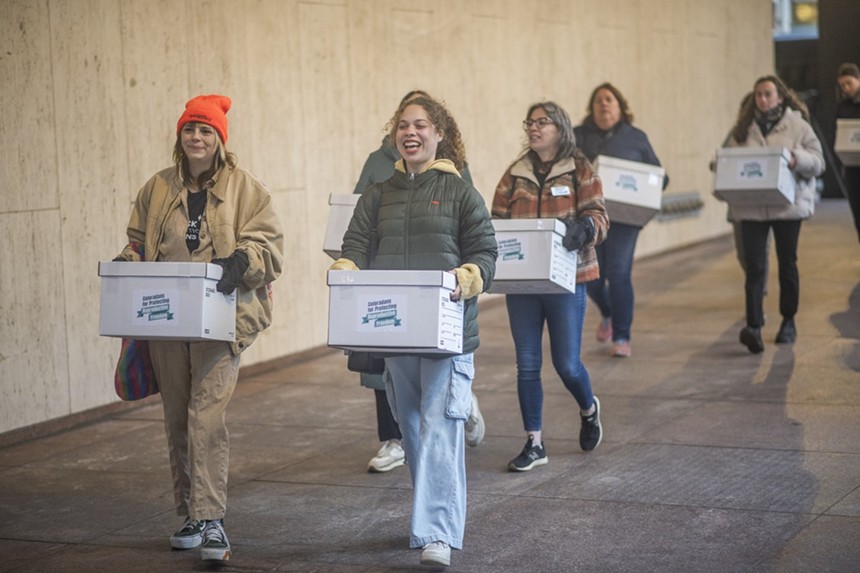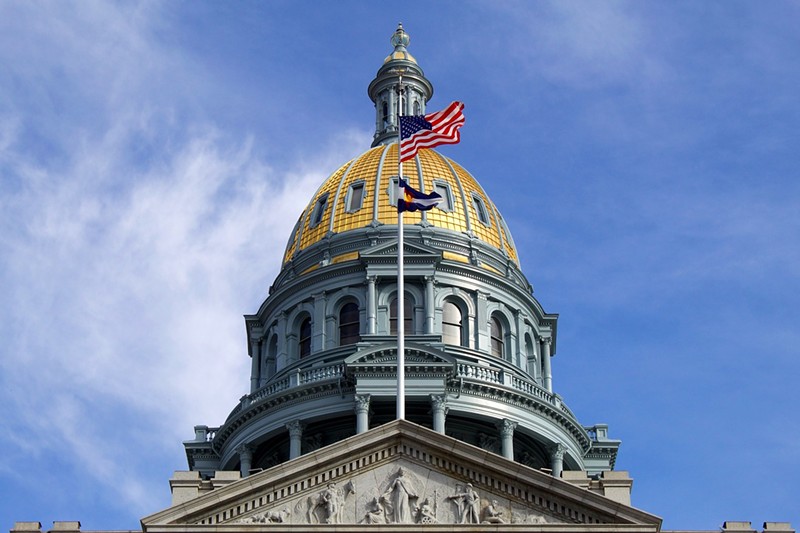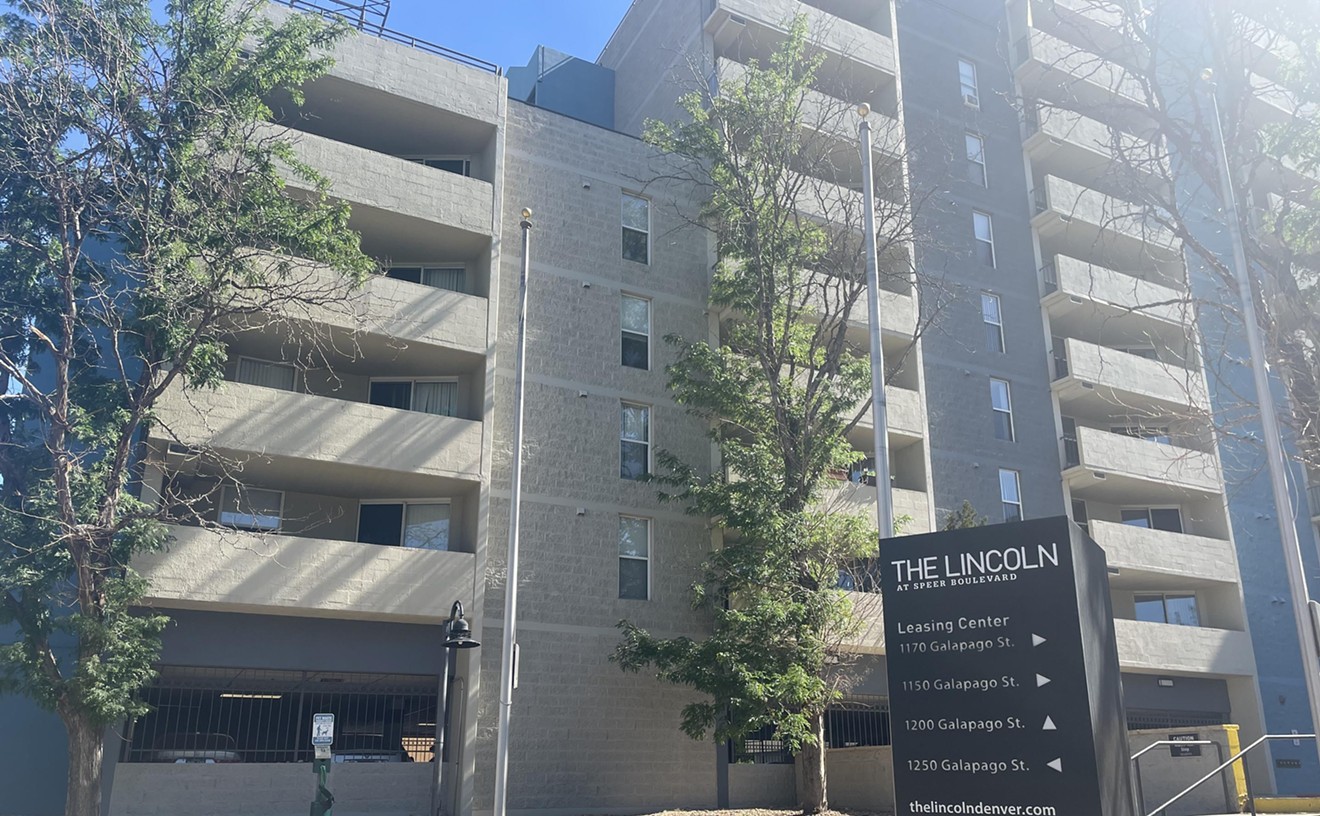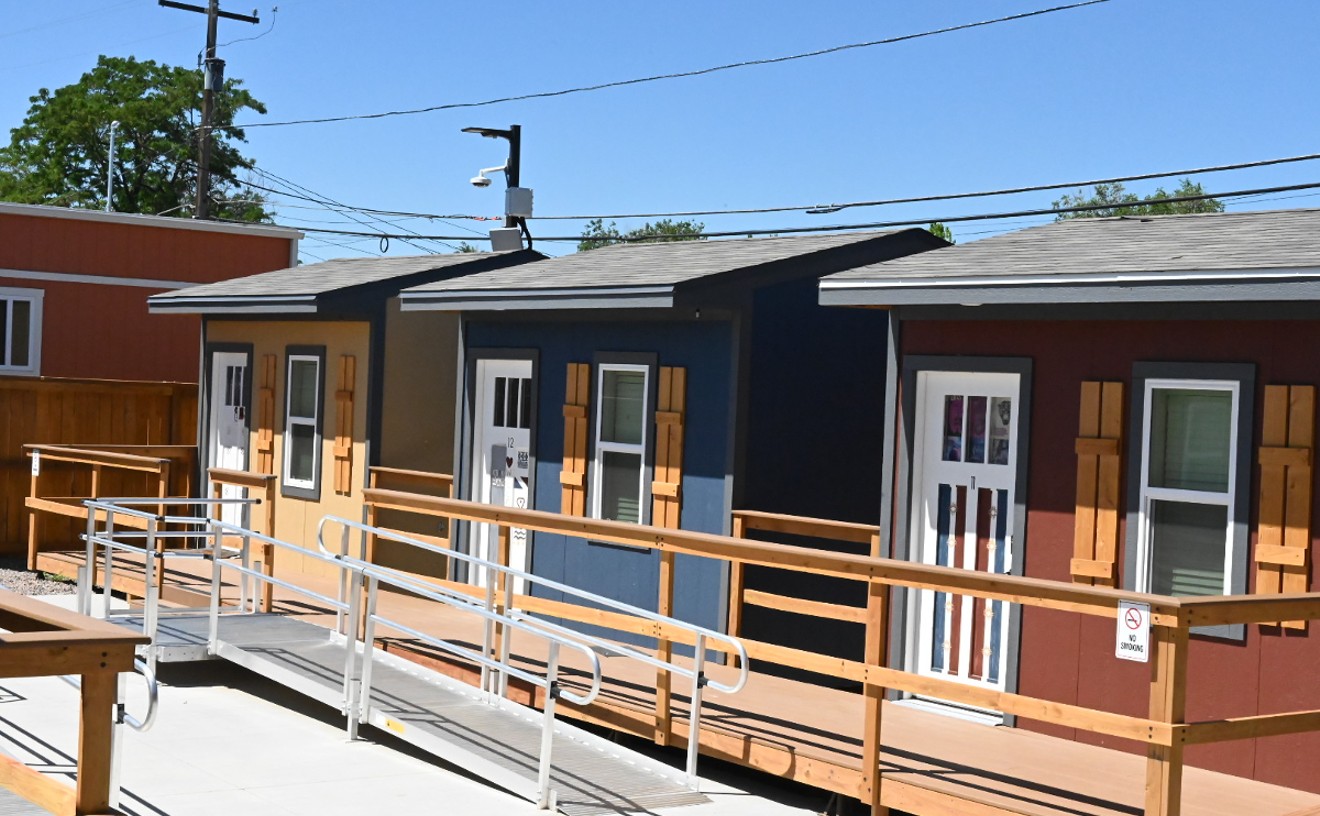The five legislative ballot proposals would let the state keep all sports betting tax revenue to fund water projects; create an excise tax for gun and ammo purchases to fund victim services; remove the ban on same-sex marriage from Colorado's constitution; adjust certain election filing deadlines; and let judges deny bail to people charged with first-degree murder.
A citizen-initiated proposal to enshrine the right to abortion and allow state funds to be used to pay for abortions will also be on the ballot. On May 17, the Colorado Secretary of State's Office confirmed that supporters had submitted enough signatures to qualify.
Initiative 81, an effort to ban abortion at any point after conception, did not submit signatures; organizers said they fell short of the 124,238 signatures needed to qualify for the ballot.
"Many didn’t have the faith or vision to see this amazing window of opportunity to lead our state to choose life," Faye Barnhart, who co-led Initiative 81's campaign, told Westword on April 18. "We mourn the loss of these children’s lives because we didn’t do everything we could to save them."
So far, 149 ballot measures have been rejected, withdrawn or expired, according to the Colorado Secretary of State's website.

Members of Coloradans for Protecting Reproductive Freedom turn in 99 boxes of petitions in support of an abortion-rights ballot proposal.
Evan Semón Photography
Measures That Won't Be on the Ballot
Seven ballot measure proposals failed in the legislature.Voted down by lawmakers were ballot proposals to require that local governments ask voters for re-approval to retain more tax revenue than allowed by the Taxpayer's Bill of Rights; create a parents' bill of rights; enshrine the right to school choice in the state constitution; and expand the homestead property tax exemption for certain seniors.
Two proposals died on the calendar without final votes: measures to prohibit someone appointed to fill a vacancy in the state legislature from running for legislative office in the next term, and to establish a new formula for calculating annual property tax revenue growth limits.
A resolution to allow the legislature to pass a retrospective law to let victims of child sexual abuse pursue lawsuits for the abuse regardless of when it happened made it to the Senate floor — but it failed by just one vote on April 17 after Republicans united against it.
The legislature also stepped in to stop several competing measures regarding fossil fuels that threatened to flood the ballot this year. Advocates for those initiatives agreed to pull their proposals in a compromise announced by Governor Jared Polis, state legislators, leaders of environmental groups and oil and gas industry representatives on April 29.
The agreement included introducing a pair of bills to establish a new fee for oil and gas production and cut certain compounds from drilling operations. In exchange, legislators killed other bills meant to reduce air pollution, and industry leaders said they would withdraw their planned ballot measures.
"Forging consensus on an issue like this is hard," Senate President Steve Fenberg said in a statement. "This agreement represents Coloradans of all stripes coming together to put the needs of our state and our community first."
The measures that will be withdrawn include proposals to prevent governments from restricting energy sources, make oil and gas companies strictly liable for environmental damages, and add Republicans and Independents to the Air Quality Control Commission. The deadline to turn in petition signatures for two of the oil and gas industry's energy choice initiatives, 85 and 86, passed on April 18. Those initiatives expired, as the signatures were not submitted.
A similar legislative compromise attempted to prevent proposed property tax ballot measures by passing a bill to lower property tax rates, but advocates for the measures did not agree to pull their support.
Measures That Are in Limbo
The title board has approved 45 citizen-initiated ballot measures, but they aren't yet authorized to collect petition signatures. That's because the proponents behind the initiatives haven't submitted their petition formats, says Jack Todd, spokesperson for the Secretary of State's Office.Proponents could be abandoning these initiatives or delaying as they decide which to advance. That's likely the case for many of the repeat initiatives that received a title but haven't started petitioning; for example, the title board approved eight versions of measures to overhaul the state's election systems, five to reduce the state income tax and three to create a charter school institute.
The group behind the election reform measures, Colorado Voters First, said it is working on making "a final determination on which measures to move forward with." The measures seek to get rid of partisan primaries and implement an open primary system, in which all candidates, regardless of party affiliation, run on a single ballot, and the top four vote-getters advance to the general election.
"Our politics are broken — voters know it — and we can say with confidence that election reforms to give voters real choices and a stronger voice in our elections will be on the ballot in November,” said Curtis Hubbard, spokesperson for Colorado Voters First, in a statement on April 29.
There's no formal deadline for when proponents need to submit their petition formats for approval — but no matter when they turn those in, they only have until August 5 to collect the signatures needed to qualify for the ballot.
"The ball is in their court," Todd says.
Measures That Are Still Moving
Sixteen citizen-initiated ballot measures are currently collecting petition signatures. Proponents need 124,238 signatures from registered voters to get their initiative onto the ballot, and they only have six months after the bill title is set to do so. The latest ballot-measure petitions are due by August 5.One new initiative was approved for petitioning on May 3: Initiative 160, public athletics programs for minors, to ban transgender girls from participating in female sports by restricting participation in public school girls' sports programs to only those assigned female at birth.
If passed by the voters, here's what the other fifteen petitioning ballot measures would do:
Initiative 142, Parental notification of gender incongruence: Require public school employees to notify a student's parents if the child is experiencing "gender incongruence." Petition due on August 5.
Initiative 201, Prohibit ranked choice voting: Prohibit ranked choice voting from being used in any election for public office in Colorado. Petition due on August 5.
Initiative 202, Ballot access through caucus and assembly process: Enshrine in the state constitution the right of candidates to qualify for the ballot through a political party's caucus and assembly process. Petition due on August 5.
Initiative 278, Primary elections for major political parties: Enshrine in the state constitution the right of major political parties to hold separate primary elections to select candidates. Petition due on August 5.
Initiative 91, Prohibit trophy hunting: Ban the hunting of mountain lions, bobcats and lynx statewide, making it a Class 1 misdemeanor. Petition due on July 5.
Initiative 108, Valuation for assessments: Decrease the state property tax assessment rate to 5.7 percent for residential property and 24 percent for commercial property. Petition due on July 25.
Initiative 112, Concerning eligibility for parole: Require offenders convicted of certain violent crimes to serve their full sentence if they've been convicted of a violent crime twice before, and increase the required percentage of sentence served before parole for certain violent offenses. Petition due on July 25.
Initiative 138, School choice in K-12 education: Add a child's right to school choice and a parent's right to "direct" their child's education to the state constitution. Petition due on July 25.
Initiative 144, Veterinary telehealth: Allow state-licensed veterinarians to provide animal health care services through audiovisual communication systems. Petition due on August 5.
Initiative 145, Establish qualifications and registration for VPA: Create the Veterinary Professional Associate position, allowing people with a master's degree in veterinary care to carry out certain routine procedures. Petition due on August 5.
Initiative 147, Criteria for obtaining concealed handgun permit: Prohibit sheriffs from denying applications for concealed handgun permits based on marijuana use that is lawful in Colorado. Petition due on August 5.
Initiative 150, Damages involving catastrophic injury or wrongful death: Remove the limitations on the amount of damages a victim or their family can recover in cases involving catastrophic injury or wrongful death. Petition due on August 5. This measure is also awaiting action from the Colorado Supreme Court.
Initiative 157, Funding for law enforcement: Create a $350 million fund for law enforcement pay, recruitment, training and providing $1 million in death benefits to the family of any officer killed in the line of duty. Petition due on August 5.
Initiative 170, Limit on contingency fees: Restrict the contingency fee attorneys charge clients in personal injury or wrongful-death cases to no more than 25 percent of the total amount awarded to the client. Petition due on August 5.
Initiative 171, Disclosure of litigation costs and expenses: Require attorneys to disclose in writing all costs the client will be responsible for ahead of time in personal injury or wrongful death cases. If the total costs exceed the estimate by more than 10 percent, the client is not liable to pay the excess. Petition due on August 5.












